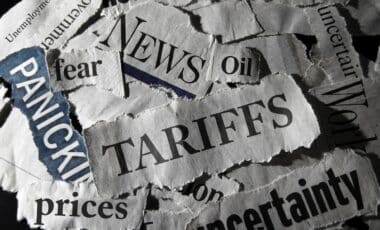U.S. President Donald Trump has secured a pivotal trade agreement with Japan that promises to reshape bilateral economic relations. The deal, announced on July 22, includes a significant reduction in tariffs on Japanese automobiles and other imports, marking a key victory for both nations.
The agreement is viewed as a major step in Trump’s broader trade strategy, which has seen the imposition of tariffs on various foreign goods since April.
Japan’s auto industry, a cornerstone of its exports to the United States, is set to benefit from this deal, as tariffs on vehicles and parts will drop from 25% to 15%. This development has been hailed as a breakthrough in trade negotiations and has already had a noticeable impact on the market, with Japanese automakers’ shares soaring.
However, the deal has not been without its critics, especially among U.S. automotive manufacturers, who have raised concerns over the trade imbalance and the treatment of imports from Japan compared to those from Canada and Mexico.
The Deal’s Key Provisions
According to a statement from the White House, Japan has committed to a $550 billion investment in the U.S., which will be allocated to sectors such as pharmaceuticals, semiconductors, and agricultural goods.
In return, Japan will see its tariffs on cars and parts reduced to 15%, from the previously threatened 25%. Additionally, duties on other goods set to take effect on August 1 will also be lowered.
Japanese Prime Minister Shigeru Ishiba called the deal the “the lowest figure to date among countries with trade surpluses with the US.” reflecting Japan’s success in securing favourable terms. Japan’s investment will be used to bolster resilient supply chains within the U.S., a critical area of concern amid global economic uncertainties.
The move is expected to further deepen U.S.-Japan economic ties, reinforcing Japan’s position as one of America’s key trading partners.
Mixed Reactions from Industry Leaders
While Japan’s automobile sector celebrates the tariff reduction, the deal has sparked criticism within the U.S. automotive industry. American carmakers, including General Motors, Ford, and Chrysler, voiced concerns about the disparity in tariff treatment.
They argue that while Japanese imports benefit from lower tariffs, vehicles made in North America still face the 25% tariff imposed by Trump earlier this year. Matt Blunt, President of the American Automotive Policy Council, argued that the deal disadvantages U.S. manufacturers by favoring imports with little American content.
In addition, the deal does not address other contentious issues, such as the 50% tariffs on Japanese steel and aluminum, which remain in place. Japan’s trade envoy, Ryosei Akazawa, confirmed that the agreement did not cover these materials, a point of contention that may continue to influence future negotiations.









